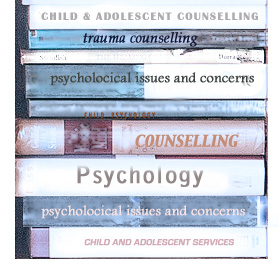How Early Childhood Attachments Shape our Adult Relationships
This information sheet may be of interest to the following people:
- Adult children of alcoholics/drug addicts
- Adults who experienced childhood sexual abuse
- Mothers with Postnatal Depression
- Parents experiencing difficulty bonding to their children
- Adults prone to unsatisfactory or abusive relationships
- Adults who experienced childhood physical or emotional abuse
- Adults who experience childhood abandonment, neglect or loss of a parent
- Adults with low self-esteem
- Adults with depression
- Adults prone to shame
Secure Attachment
The ideal conditions that enable a child to thrive require that they have the close proximity of at least one parent (or care giver) whom is both consistent and sensitive to the child’s needs. When a child is raised in an environment that is warm, responsive and dependable, this creates a secure base from which the child can begin to explore their world. When the parent is consistently physically and emotionally available this enables the child to feel securely attached to the parent and the child begins to develop a sense of trust and has positive expectations of other people. It is through this experience of feeling securely attached to the parent that the child develops the capacity to form satisfying relationships with other people in their life.
Insecure Attachment
Many young children have early childhood experiences which are disruptive to the formation of a consistent and loving bond with a parent. For some children the disruption may be a physical one, for example:
Severe illness resulting in long periods of hospitalization
Regular family crises that result in the parent being physically absent.
Work commitments that require the parent to travel regularly
Death of a parent
Sometimes young children are regularly threatened with physical abandonment by a parent and even though physical separation may not actually occur, these regular threats can result in a child feeling insecurely attached to that parent.
For other children the early attachment disruption is a consequence of the parent being emotionally inconsistent or absent, for example:
- The parent is alcoholic or addicted to drugs
- The parent is emotionally unstable or inconsistent in their care
- The parent is depressed or suffers from a mental illness
- The parent is self-absorbed and unresponsive to the child’s needs
- The family is in crisis resulting in the parent being emotionally unavailable
- The parent is emotionally, physically or sexually abusive
Insecure Attachment in Adulthood
As adults we instinctively know that our earliest attachments still impact on our current adult relationships with our partners, friends, families and our children. An early experience of insecure attachment may manifest in many ways in our adult lives, for example as an adult you may:
- Habitually fear rejection or abandonment in close relationships
- Have difficulty trusting and seeking help from other people
- Experience low self-esteem and depression
- Have distorted or negative self-beliefs
- Lack confidence and be prone to shame
- Avoid attachment to others altogether to avoid betrayal
- Habitually form unsatisfactory or abusive relationships
- Have difficulty forming a close relationship with your child
As an adult it is possible to heal the legacy of our unmet early attachment needs. Sometimes it requires the support of a therapist who is respectful of the impact of our childhood attachments and is able to provide a secure base from which to explore them. Ultimately it is through healing our unmet childhood attachment needs that we increase our capacity to trust and love others and create more satisfying relationships in our adult lives.
Further Reading Becoming Attached, Robert Karen – 1994, Oxford University Press A Secure Base, John Bowlby – 1988, Routledge

